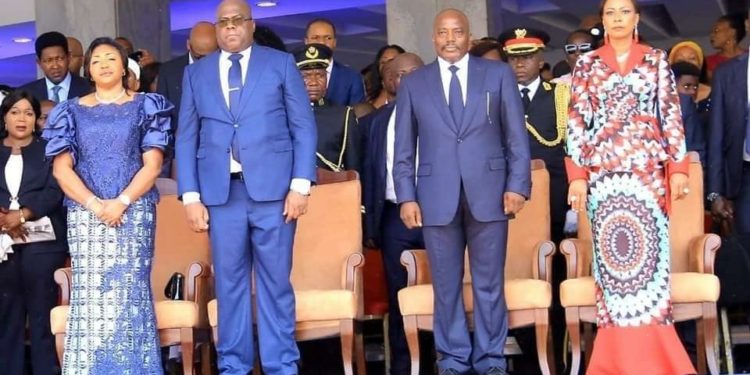By CHIMPREPORTS
Joseph Kabila’s political party, the Common Front for Congo (FCC), has issued a threat to mobilize Congolese citizens to protest the perceived irregularities in the recently held general elections. The FCC, in a statement on Wednesday night, claimed that logistical challenges during the December 20 elections disenfranchised millions of voters, urging its supporters to contest the election results.
The statement from FCC read, “FCC invites the Congolese population to lawfully mobilize each other to put an end to this dictatorial regime which, using and abusing public power, manages the country in violation of the Constitution and the laws of the Republic.”
FCC further called on its executives and activists to be prepared for actions decreed as part of a general mobilization to restore constitutional order and ensure truly inclusive, free, and transparent elections.
The party alleged various issues with the election process, including unopened polling stations, malfunctions in voting machines, fictitious offices managed by candidates of the Sacred Union (the political party of President Tshisekedi), and the discovery of voting machines and ballots in the hands of individuals associated with the Sacred Union.
In response to the challenges, the Independent National Electoral Commission (CENI) extended the voting period for an additional day (Thursday) due to delayed delivery of voting materials and malfunctions in voting kits.
Opposition leaders, including Moise Katumbi and Martin Fayulu, rejected the extension of the voting period, deeming it illegal. They criticized CENI’s management of the electoral process, stating that millions of voters were unable to cast their ballots.
CENI defended its decision to extend the voting period, citing the delay in deploying certain electoral materials and equipment. The electoral body emphasized its commitment to ensuring that voting operations continued without interruption.
FCC, formed in June 2018 by former Congolese leader Joseph Kabila, expressed dissatisfaction with the election process, accusing President Tshisekedi’s government of disregarding political, technical, security, and logistical advice, ultimately failing to deliver credible elections.
The Democratic Republic of the Congo (DRC) remained largely peaceful, with isolated cases of violence reported. Over 40 million voters in the DRC and the diaspora were expected to vote to fill 1,511 seats from a selection of over 100,000 candidates.
A pre-election poll by GeoPoll indicated that the majority of voters were willing to support a second term for President Felix Tshisekedi. However, dissatisfaction with the state of the country, particularly concerning unemployment, insecurity, infrastructure, and food prices, was prevalent among the Congolese population, according to the poll. The opposition, despite divisions, presented 18 challengers in the race against President Tshisekedi.







Discussion about this post